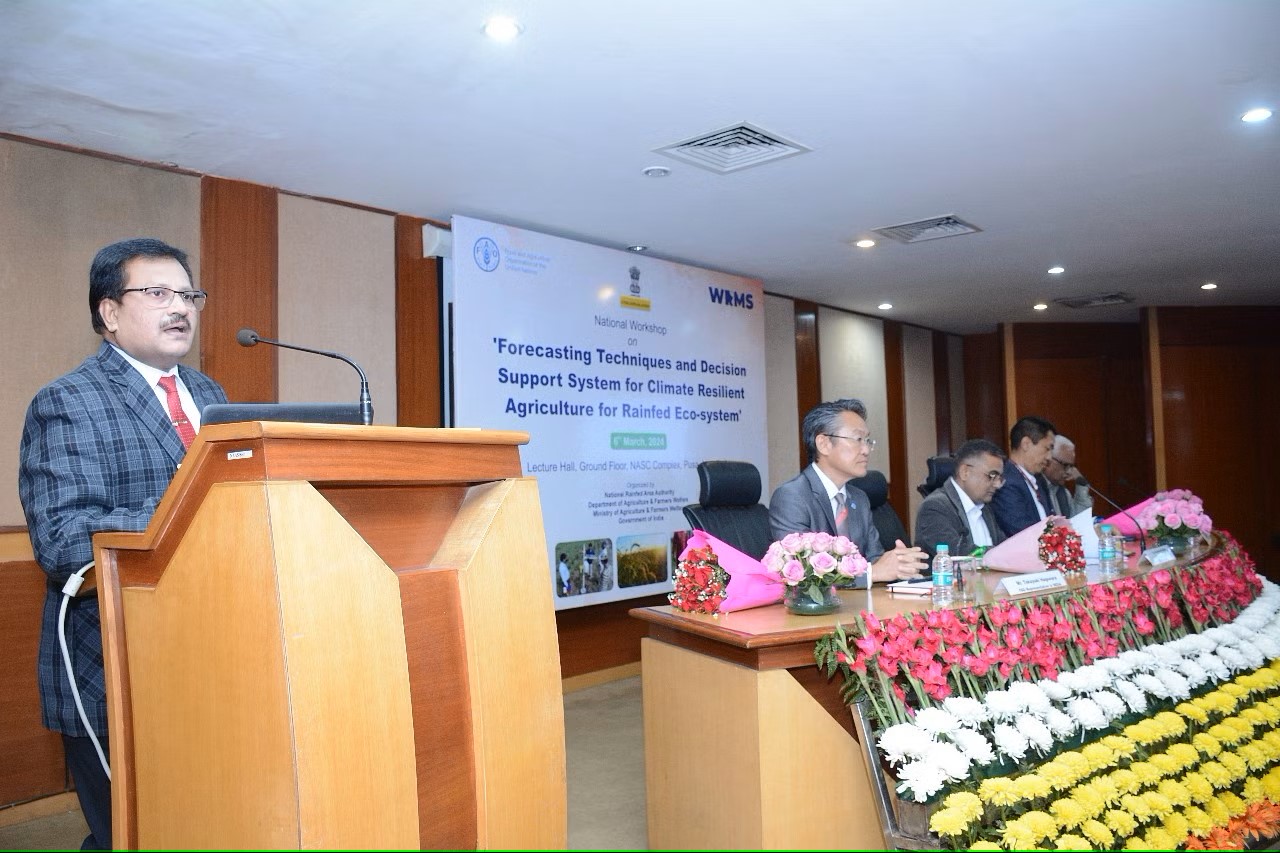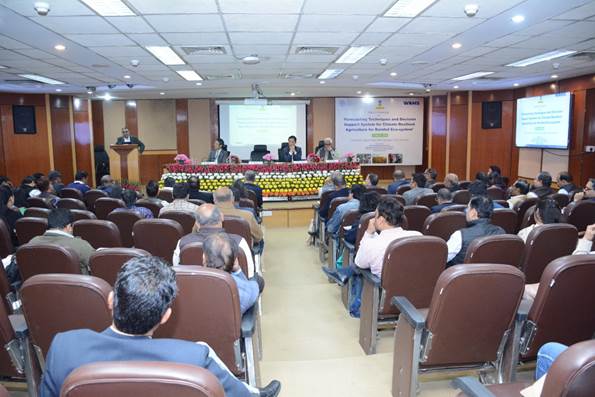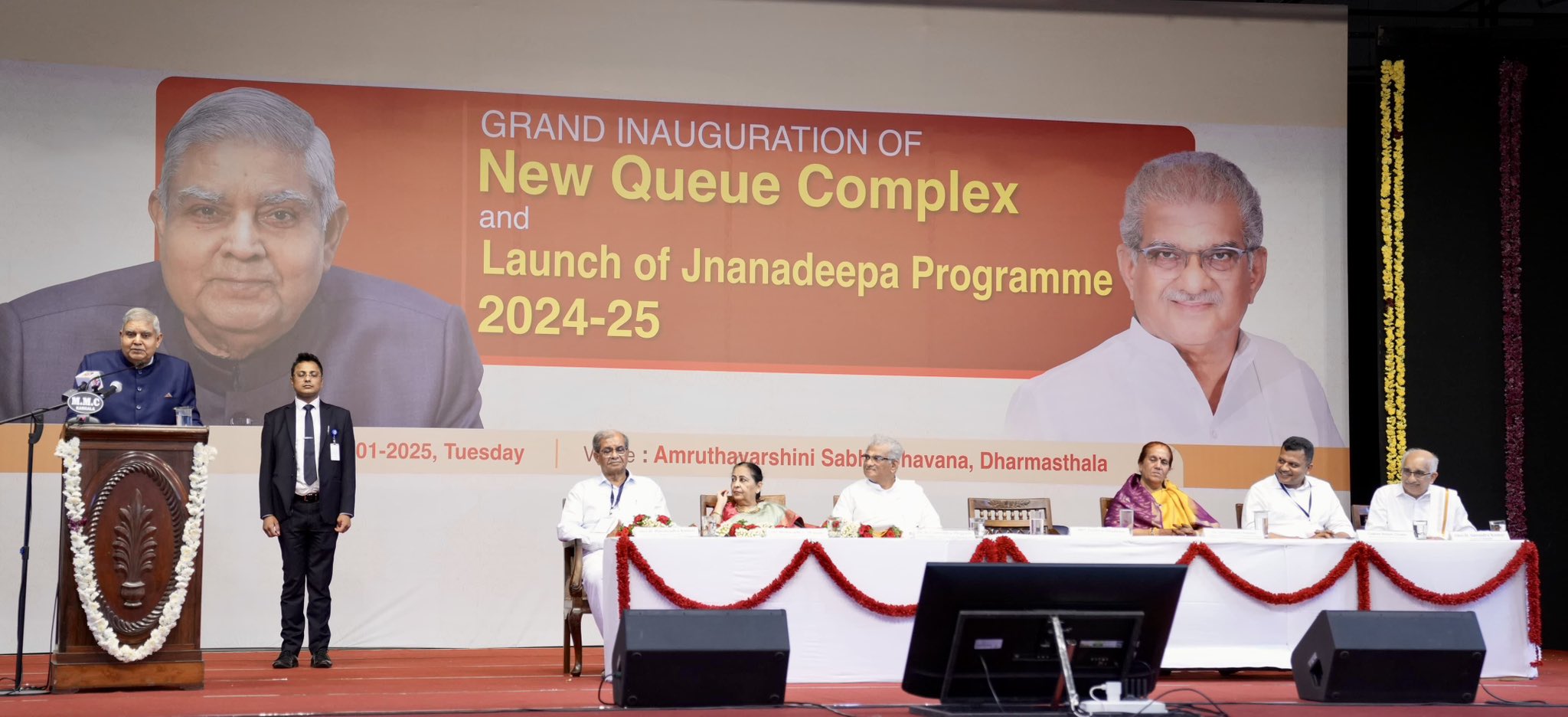A recent National Workshop hosted by the National Rainfed Area Authority (NRAA) in New Delhi marked a significant step towards building climate resilience in India’s rainfed agricultural sector. Titled “Digital Forecasting Techniques and Decision Support System for Climate Resilient Agriculture in Rainfed Ecosystems,” the event brought together a diverse range of stakeholders, including government officials, agricultural experts, researchers, policymakers, farmers, and NGOs. This collaborative approach underscored the critical need for collective action in addressing the challenges faced by rainfed agriculture, which encompasses nearly 60% of India’s net sown area and plays a vital role in ensuring national food security in the face of a changing climate.
 The workshop served as a platform for brainstorming innovative solutions, refining forecasting models, and developing a robust framework for effective risk mitigation. Discussions revolved around various critical aspects of rainfed agriculture, including:
The workshop served as a platform for brainstorming innovative solutions, refining forecasting models, and developing a robust framework for effective risk mitigation. Discussions revolved around various critical aspects of rainfed agriculture, including:
- Developing customized advisories: Experts explored strategies for providing farmers with location-specific advisories on crop selection and management practices, weather alerts, pest and disease control measures, market information, and post-harvest handling techniques. These advisories, tailored to the unique needs and challenges of each region, are crucial for optimizing agricultural productivity and minimizing risks associated with climate variability.
- Harnessing the power of digital agriculture: Technical sessions led by eminent specialists in agriculture, climate science, and information technology delved into the intricacies of digital forecasting techniques and integrated systems for accessing agricultural resources. Participants explored the potential of using geospatial data to assess soil health, monitor crop growth patterns, and identify areas vulnerable to drought or other climate extremes. Additionally, the role of AgriMedia, a government initiative providing real-time agricultural information through mobile phones, was highlighted as a crucial tool for knowledge dissemination and capacity building among farmers.
The workshop prioritized open-house discussions and actively sought feedback from beneficiary farmers. Sharing their experiences with digital forecasting techniques provided valuable insights into the practical applicability and impact of these technologies on the ground. Farmers highlighted the challenges they faced, such as limited access to internet connectivity and digital literacy, which can hinder the widespread adoption of these solutions. This feedback served as a crucial reminder of the importance of bridging the digital divide and ensuring equitable access to these tools for all farmers, particularly those in marginalized communities.
The workshop concluded with a forward-looking vision aimed at charting the course for sustainable agricultural practices in rainfed ecosystems. Participants expressed optimism about the potential of digital agriculture to revolutionize the sector and enhance the livelihood security of farmers across the nation. This positive outlook underscores the importance of collective action and technological advancements in addressing the challenges faced by rainfed agriculture.
Moving forward, it is crucial to build upon the momentum generated by the workshop and translate its outcomes into concrete action. This requires a multi-pronged strategy that addresses not only the technological aspects but also the social and institutional dimensions of climate-resilient agriculture:
- Strengthening infrastructure and capacity building: Expanding internet connectivity and digital literacy programs in rural areas is essential to ensure equitable access to digital solutions for all farmers. This can be achieved through public-private partnerships and community-based initiatives. Additionally, training programs can equip farmers with the skills and knowledge needed to effectively utilize digital tools and interpret the information they provide.
- Developing location-specific solutions: Climate change impacts vary significantly across different regions. Therefore, developing location-specific advisories, crop recommendations, and risk mitigation strategies tailored to the unique needs and challenges of each region is crucial for maximizing the effectiveness of digital interventions. This may involve collaborating with local research institutions and agricultural extension services to ensure that these solutions are grounded in local knowledge and context.
- Promoting market linkages: Integrating digital platforms with market information systems can empower farmers to make informed decisions about crop selection, pricing, and marketing. This can be achieved by developing online platforms that provide farmers with real-time market prices, information on potential buyers, and access to e-commerce opportunities. Empowering farmers with market knowledge can enable them to improve their bargaining power and access remunerative markets, ultimately contributing to increased income and improved livelihoods.




